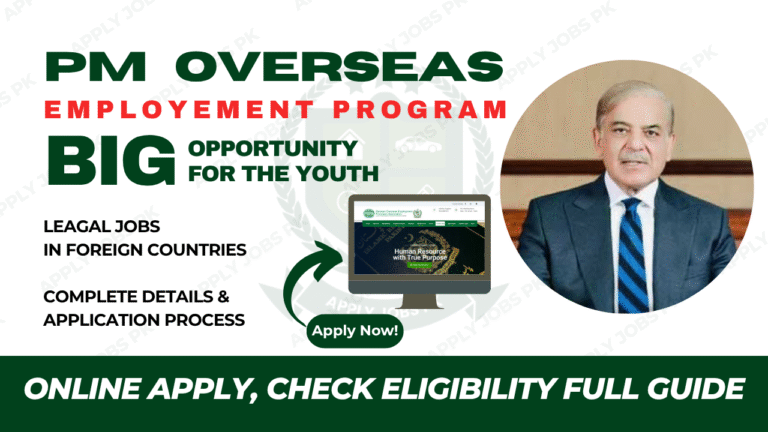U.s. Work Permit 2025: New Rule Changes & Foreigner Application Process

The U.S. Work Permit 2025, also known as the Employment Authorization Document (EAD), has undergone major updates that every foreign worker should understand. From renewal flexibility to priority processing for high-demand industries, these reforms affect skilled professionals, students, dependents, and visa holders alike.
Knowing the new eligibility criteria, required documents, processing timelines, and automatic extension policies can help applicants navigate the U.S. employment system smoothly under the revised rules for U.S. work permit.
What is a U.S. Work Permit (EAD)?
A U.S. Work Permit, officially called the Employment Authorization Document (EAD), allows foreign nationals to work legally in the United States. It is issued by USCIS through Form I-765.
Key updates for 2025 include:
- Extended automatic renewal period (from 180 days to up to 540 days)
- Improved digital verification and anti-fraud protocols
- Priority adjudication for jobs in high-demand sectors
- Greater renewal flexibility and compliance oversight
These changes aim to reduce employment interruptions and better align workforce needs with national security.
Who Is Eligible For U.s. Work Permit Under the 2025 Rules?
Eligibility still depends on your visa category and individual circumstances, but the 2025 policy clarifies who qualifies and how extensions are granted.
| Category | Eligibility Requirements | Notes |
|---|---|---|
| H-1B Dependents | Spouse or children of H-1B holders | Must retain lawful status |
| OPT / F-1 Students | Students completing coursework or Optional Practical Training | Must have valid F-1 visa and apply on time |
| Skilled Workers | Foreign professionals with U.S. job offers | Employment verification required |
| Refugees / Asylees | Granted asylum or refugee status | Must carry valid USCIS documents |
| Other Visa Classes (L-2, J-2, etc.) | Based on visa-specific conditions | Must comply with visa class rules |
Additional requirements include:
- Valid passport and visa
- Proof of lawful status (I-94, prior EAD, etc.)
- Employment offer or job contract (if applicable)
- Compliance with all U.S. immigration laws
Application Process for EAD (Form I-765) – 2025 Edition
Follow these updated steps for a successful EAD application:
- Complete Form I-765
Use the latest version of the form (older editions may be rejected). - Gather Required Documents
- Valid passport
- Visa or I-94 record
- Previous EAD (if applicable)
- Job offer letter (if job-based)
- Supporting status documentation
- Pay Application Fee or Request Waiver
Some categories may qualify for fee waivers based on visa type or income. - Submit the Application
You can file electronically or by mail, depending on eligibility. - Attend Biometric Appointment
Complete fingerprints and identity verification if required. - Track Your Case
Monitor progress using your USCIS receipt number. - Receive Your Decision / EAD Card
You’ll receive approval by mail or online notification.
Pro Tips:
- Submit high-quality scanned documents.
- Double-check spelling, signatures, and form fields.
- Apply early to avoid processing delays.
Key 2025 Rule Changes & Enhancements
1. Permanent 540-Day Automatic Extension for Renewals
Eligible applicants can now receive up to 540 days of automatic extension when renewing on time, preventing employment gaps.
2. Flexible Renewal Timelines
Renewal applications can now be submitted up to 6 months before expiry, ensuring continuous authorization.
3. Priority Processing for High-Demand Occupations
Professions in AI, healthcare, engineering, cybersecurity, and other STEM fields may qualify for expedited adjudication.
4. Stronger Anti-Fraud Policies
Submission of false or misleading documents can result in fines, bans, or even deportation.
5. Enhanced Compliance Audits
USCIS now performs deeper checks on visa validity, immigration status, and lawful presence before approval.
Processing Timeline & Validity
| Applicant Type | Processing Time | Notes |
|---|---|---|
| Regular Categories | 2–6 months | Based on USCIS workload |
| OPT / F-1 Students | 2–4 months | Corresponds to OPT period |
| Priority Occupations | 60–90 days | Under expedited processing |
| H-1B Dependents | 3–5 months | Must maintain valid H-1B status |
Validity Period:
- Typically 1 to 2 years, depending on visa class
- Renewals allowed if eligibility continues
- Employment authorization remains valid during renewal review
Preparation Checklist
Before submission, make sure you have:
- Valid passport and visa
- I-94 record
- Previous EADs (if applicable)
- Job offer or employment contract
- Completed Form I-765
- Proof of lawful status
- Biometric appointment notice
- Two passport-sized photos
Priority Work Permit Categories in 2025
Certain professionals benefit from priority handling, such as:
- Healthcare workers (nurses, doctors, technicians)
- STEM & AI engineers
- University researchers and professors
- Critical infrastructure workers (energy, cybersecurity, utilities)
Expedited processing minimizes employment delays and keeps essential industries staffed.
Common Mistakes to Avoid
- Using outdated versions of Form I-765
- Submitting incomplete or unsigned applications
- Late renewals causing work interruptions
- Entering incorrect visa or job information
- Missing biometric appointments
Avoiding these errors ensures faster and smoother approval.
Advantages of the 2025 EAD Updates For U.s. work permit
- Extended work authorization without visa violations
- Easier renewal process and longer extensions
- Streamlined case tracking through USCIS portal
- Faster processing for critical industries
- Improved compliance and security verification
FAQs
Q1: Who can apply for a U.S. work permit in 2025?
Foreign nationals like OPT students, H-1B dependents, skilled professionals, refugees, and other eligible visa holders may apply if they meet new requirements.
Q2: How long does processing take?
Regular applications take 2–6 months, while priority fields (like healthcare and AI) can be approved in 60–90 days.
Q3: When should I renew my EAD?
Renew at least 180 days before expiry to benefit from the automatic extension.
Q4: What happens if I use an old I-765 form?
USCIS can reject outdated forms, so always use the current version.
Q5: How long is a U.S. work permit valid?
Usually 1–2 years, depending on visa type and job category.
Conclusion
The U.S. Work Permit 2025 reforms mark a major step toward faster processing, longer renewals, and improved verification. With 540-day extensions, priority handling, and stronger compliance, foreign professionals now have more stability while working legally in the U.S.
Stay updated, use accurate documentation, and apply early to ensure a smooth and successful work permit approval under the new 2025 regulations.




